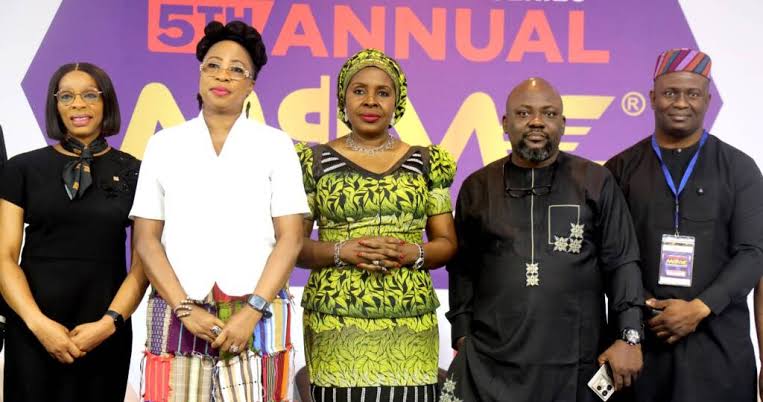A powerful partnership between Access Bank, Mastercard, and the Lagos Chamber of Commerce and Industry (LCCI) is delivering new opportunities for Nigeria’s micro, small, and medium enterprises (MSMEs), tackling challenges like limited finance access, infrastructure gaps, and skills development.
Speaking at the 5th Annual MSME and Start-up Summit 2025—hosted by The Economic Forum Series alongside News Central TV—Mrs. Chizoma Okoli, Deputy Managing Director of Access Bank Group, highlighted the vital role of inclusive financial systems in Nigeria’s economy.
“MSMEs contribute immensely to Nigeria’s growth but face obstacles such as limited financial services and lack of collateral,” she explained. “With 39 million MSMEs employing over half the workforce and generating nearly 50% of GDP, bridging the financing gap—which stands at more than $168 billion—is critical.”
Okoli detailed how Access Bank offers tailored, affordable financial products aimed at informal entrepreneurs. Their lending model uses cash flow analysis rather than traditional collateral, supported by partnerships, digital platforms, and comprehensive capacity-building programs.
Mastercard’s Country Manager for West Africa, Dr. Folasade Femi-Lawal, underscored the importance of empowering informal MSMEs and startups. “Mastercard’s mission is to drive inclusive economic growth by connecting 1 billion people to the digital economy, including 100 million MSMEs, with a special focus on 25 million female entrepreneurs,” she said.
Already ahead of schedule, Mastercard has helped 37 million women entrepreneurs gain access to digital tools and financial resources. Femi-Lawal emphasized Mastercard’s commitment to digital innovation, citing mobile-first payment solutions, contactless transactions, and digital identity verification as key enablers for inclusive growth.
“Collaboration is key,” she noted, referencing partnerships with Access Bank, African Development Bank, and ECOWAS to boost digital literacy, credit access, and financial inclusion. She also highlighted Mastercard’s AI-powered business tools, such as Mastercard Small Business AI and the Entrepreneurs Odyssey platform, which offer real-time, personalized support and training for entrepreneurs to thrive.
Dr. Femi-Lawal reiterated Mastercard’s focus on closing gender, geographic, and generational divides, ensuring women, youth, and rural MSMEs benefit from sustained support.
From the private sector perspective, Dr. Chinyere Almona, Director-General of LCCI, emphasized the sector’s pivotal role in economic growth and job creation. She acknowledged the persistent challenges faced by MSMEs—including finance, infrastructure, inconsistent policies, and power costs—and called for coherent reforms to create a more enabling environment.
“The LCCI actively advocates for better policies, leveraging research and engagement with policymakers,” she said. Dr. Almona highlighted initiatives supporting MSMEs through public-private dialogue, partnerships with development agencies, and advocacy on tax reforms and trade facilitation.
She stressed the importance of inclusive policies that support enterprise clusters, innovation hubs, business parks, and export zones, urging continued focus on entrepreneurship and regulatory understanding of business realities.
Dr. Almona reaffirmed the Chamber’s commitment to bridging business and government, championing enterprise growth, and contributing to national transformation.
Supporting this, Dr. Olasupo Olusi, Managing Director of the Bank of Industry, emphasized the role of digital financing in fostering inclusive growth and strengthening MSMEs.
Together, these efforts signal a renewed and collaborative drive to empower Nigeria’s MSMEs, positioning them for sustainable growth and integration into the global economy.

